The “Connecting the Dots” webinar series examines militarism from a variety of intersectional perspectives through the lens of Christian faith. Organized by the PCUSA’s Militarism Working Group.
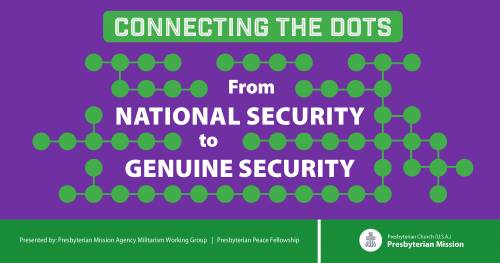
Connecting the Dots from National Security to Genuine Security: Partners from Colombia and Korea discuss the cost of militarism in their context
Speakers from Korea, Colombia and the United States will examine the theological foundation for Christians in relation to the concept of security and examine how that plays out in each context.
English
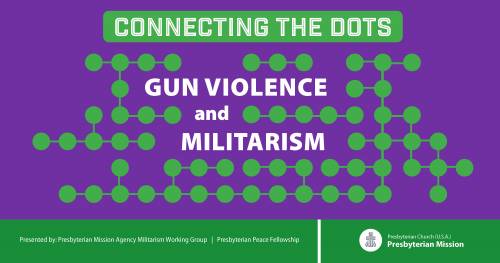
Connecting the Dots: Gun Violence and Militarism
Explore the tension between faith and security, and our relationships with each other on personal, local and international levels as they relate to guns, weapons, and militarism and learn what Presbyterians can do to unmask the false narrative of “security through might” and take action for true peace.
English Spanish Korean
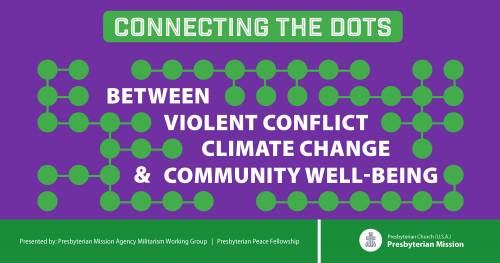
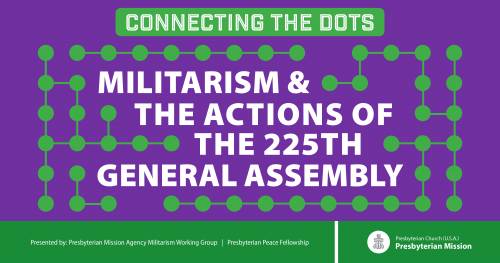
Connecting the Dots: Militarism & The Actions of the 225th General Assembly
Review the actions of the 225th General Assembly in four of its committees as they pertain to and intersect with issues of militarism: International Engagement, Environmental Justice, Immigration and Violence in the USA.
English
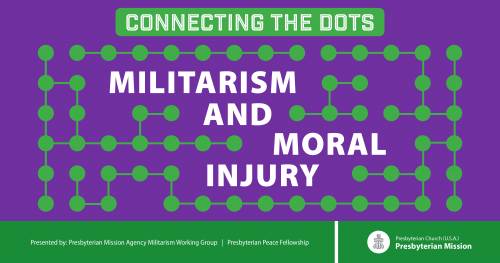
Connecting the Dots: Militarism and Moral Injury
Learn about the impact military service has on active personnel, veterans, and their families, and how the church can offer better support to these communities. Examine the effects of “Moral Injury” or the effect that can occur “in response to acting or witnessing behaviors that go against an individual’s values and moral beliefs.”
English Korean
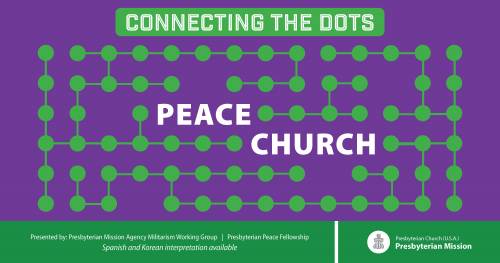
Connecting the Dots: Peace Church
Explore how our faith might direct our attitudes toward war and peace and learn what it means for PCUSA congregations to declare themselves “peace churches,” thereby aligning themselves with the pacifism of traditional peace churches such as the Quakers and the Mennonites.”
English Spanish Korean
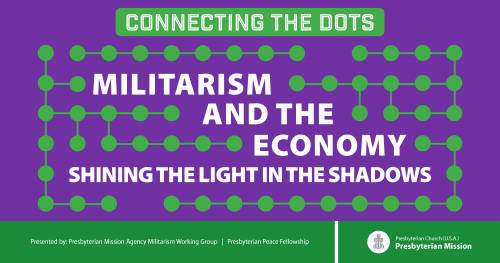
Connecting the Dots: Militarism & The Economy
Explore why our society and particularly the United States is investing so heavily in military spending while we are regularly confronted by urgent problems like poverty, broken infrastructure and environmental catastrophes. Speakers discuss what these actions say about our society, culture, and values and the God that we worship.
English Spanish
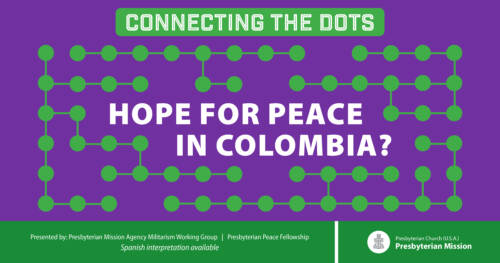
Connecting the Dots: Hope for Peace in Colombia?
The Presbyterian Church of Colombia is a historic partner of the PC(USA). For many years our joint efforts have included an active involvement in seeking peace with justice for Colombia by accompanying those most impacted by violence and advocating for political solutions to an internal armed conflict that lasted over six decades. Hear from US and Colombian Presbyterians engaged in this work. Learn about the current context and possibilities, catch glimpses of what life is like in the communities, and reflect on the ongoing challenges that militarism poses for the prospects of a just and lasting peace in Colombia.
English Spanish


Peace Cannot Be Achieved through War and Weapons: Korean Women’s Struggle against the U.S. Military Bases on the Korean Peninsula
Peace-loving women of the Korean Peninsula want to live in peace, caring for one another, and practicing peaceful coexistence. In this webinar offered on the International Women’s Day of Peace and Disarmament, we hear from Korean women peace advocates who have first-hand experience of the impacts of the U.S. military bases in South Korea because they live around the military bases
English Korean
